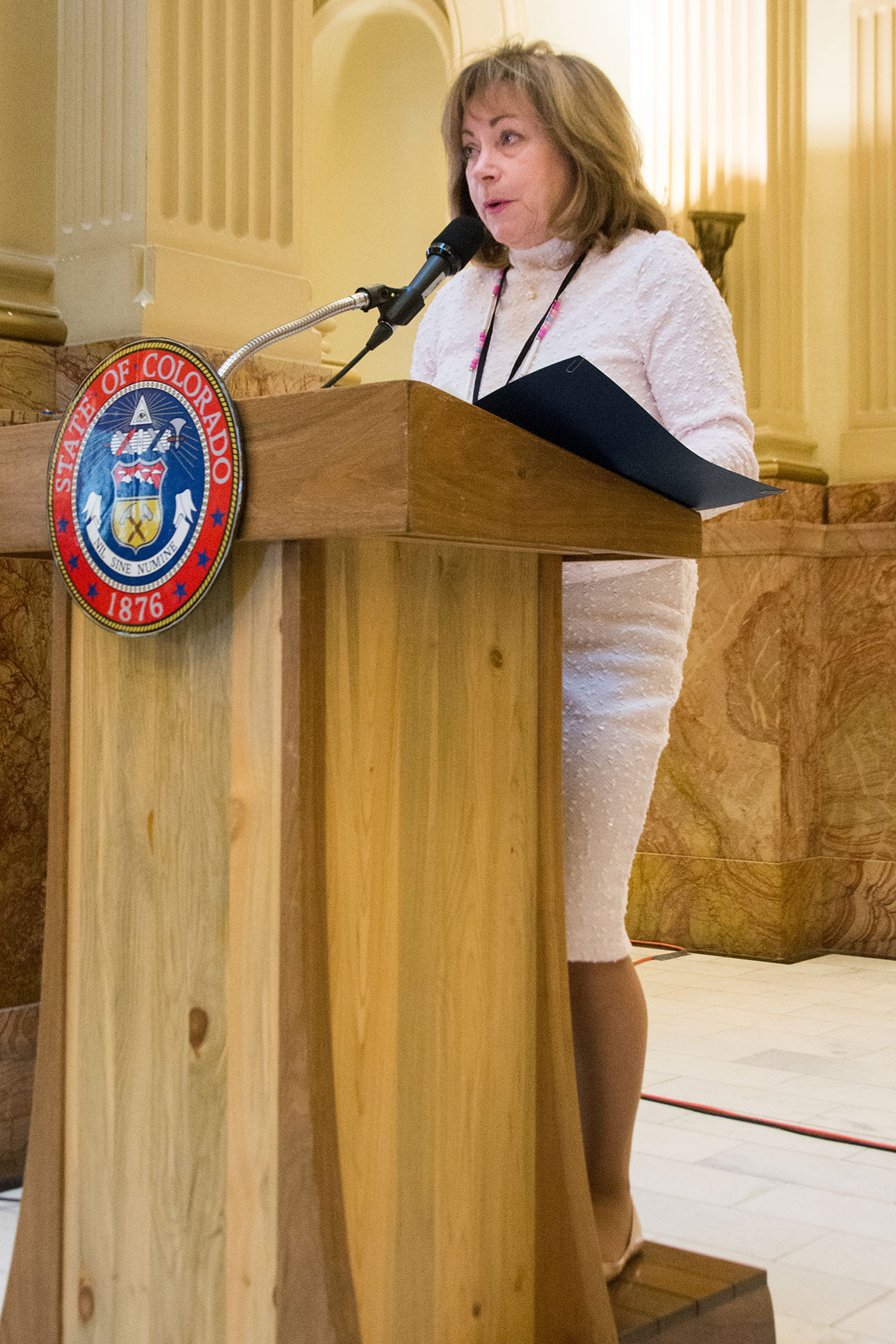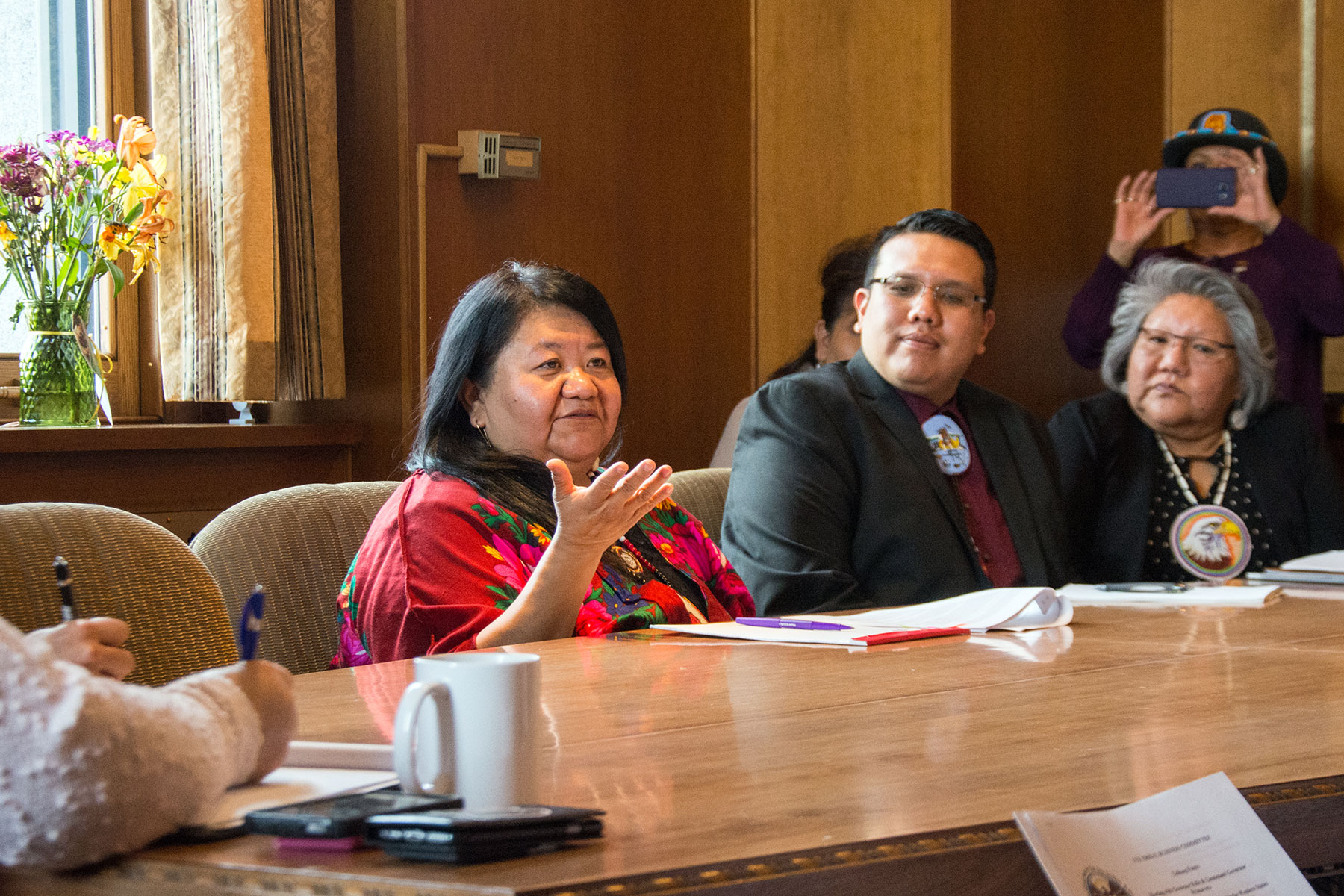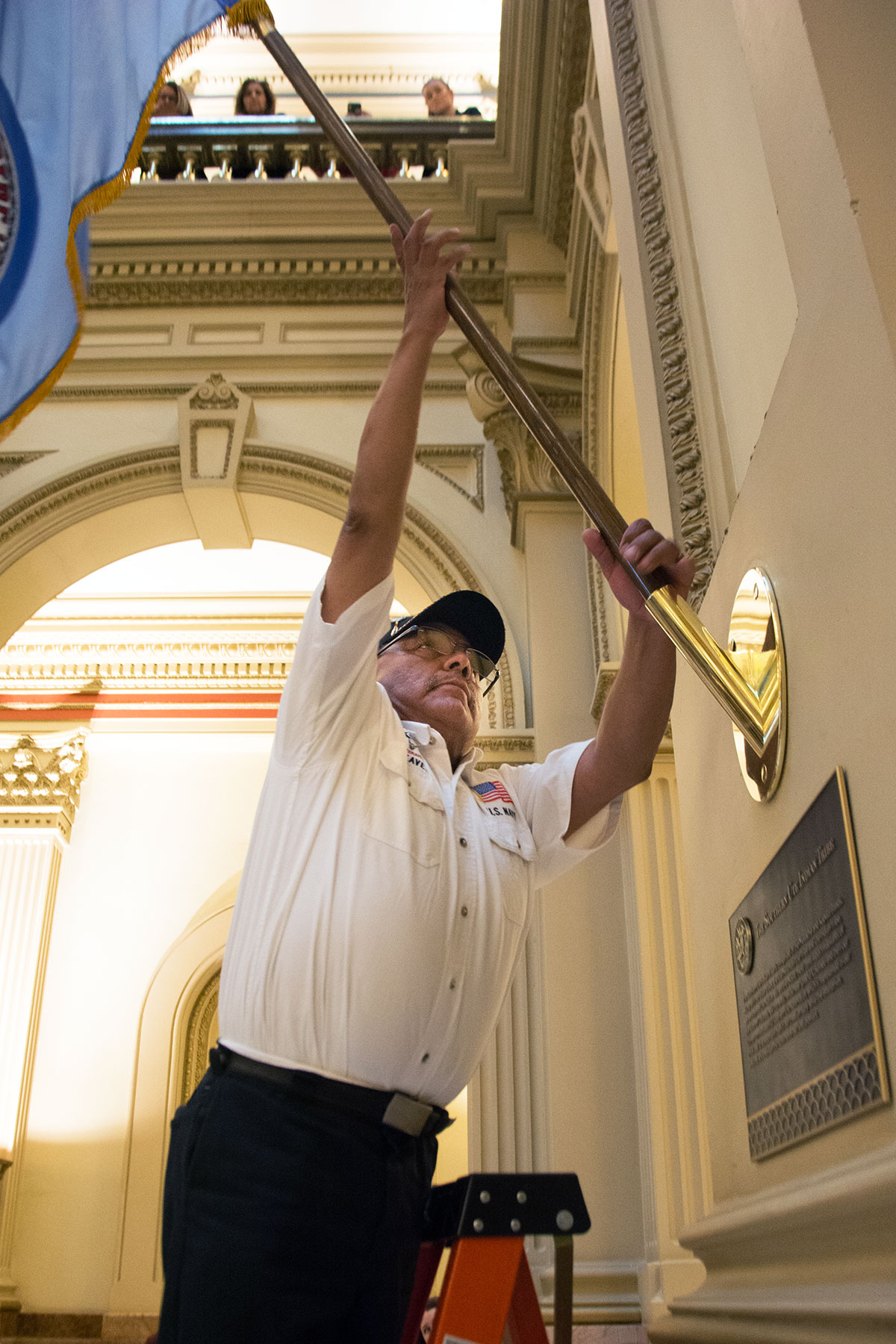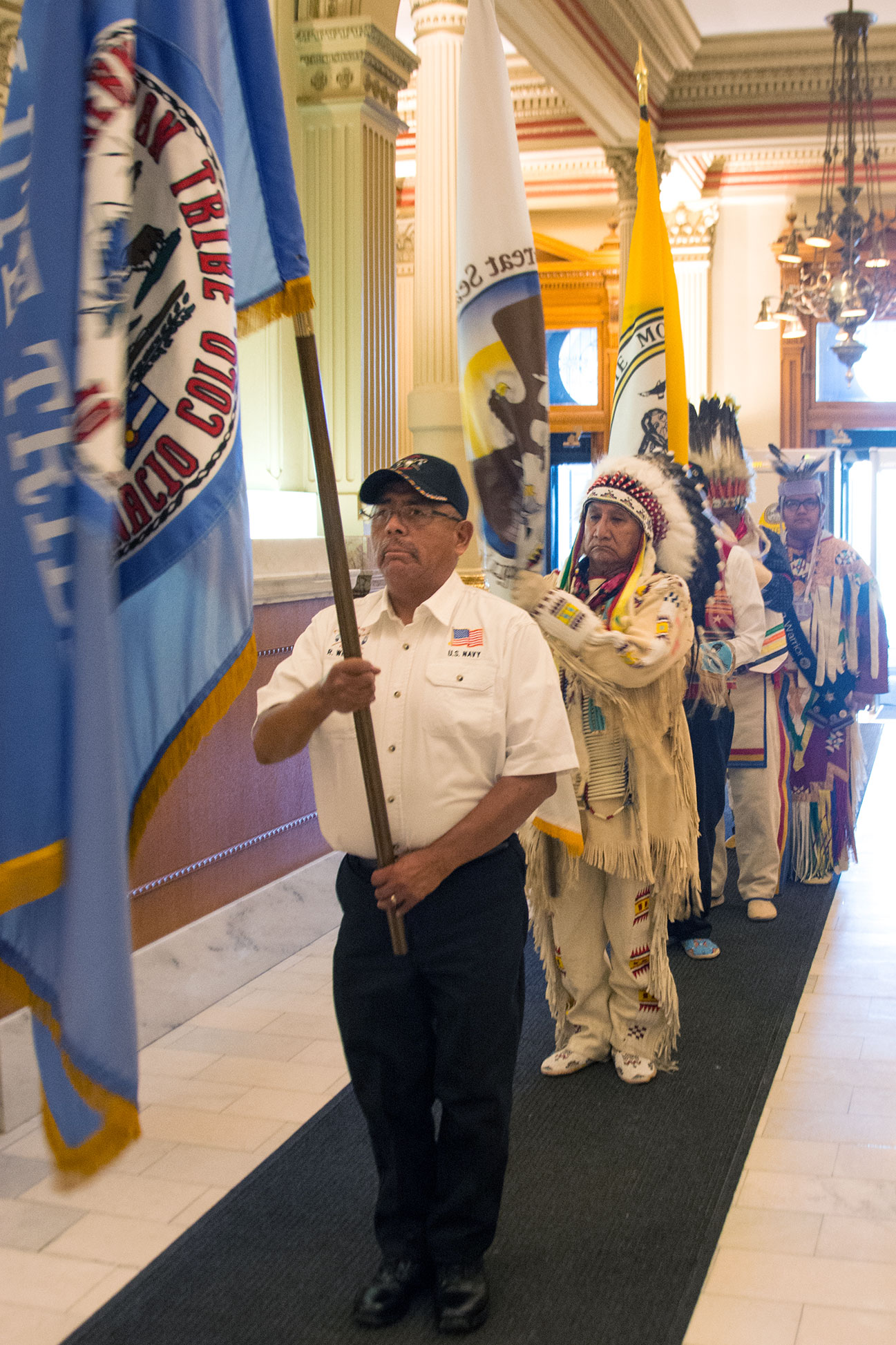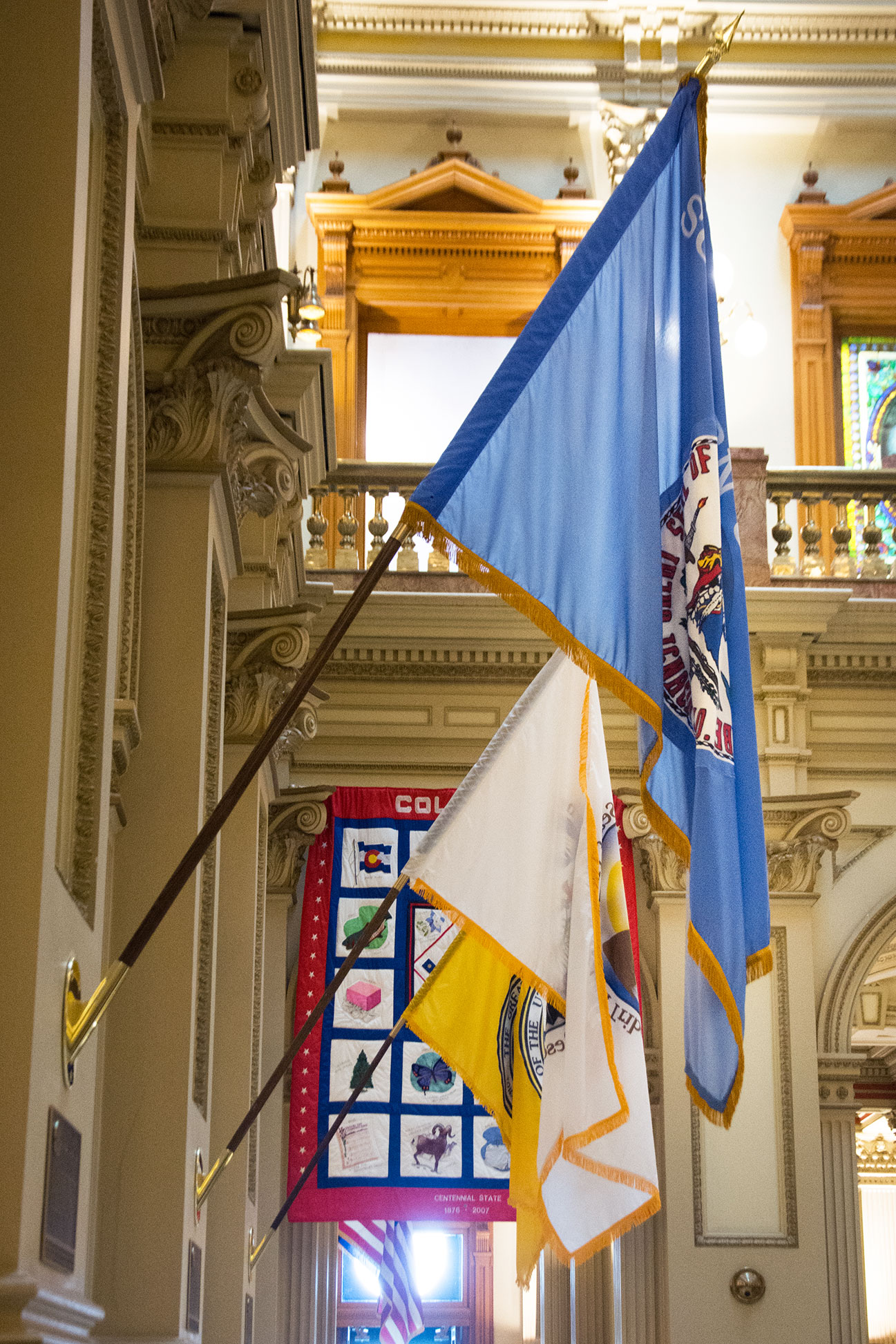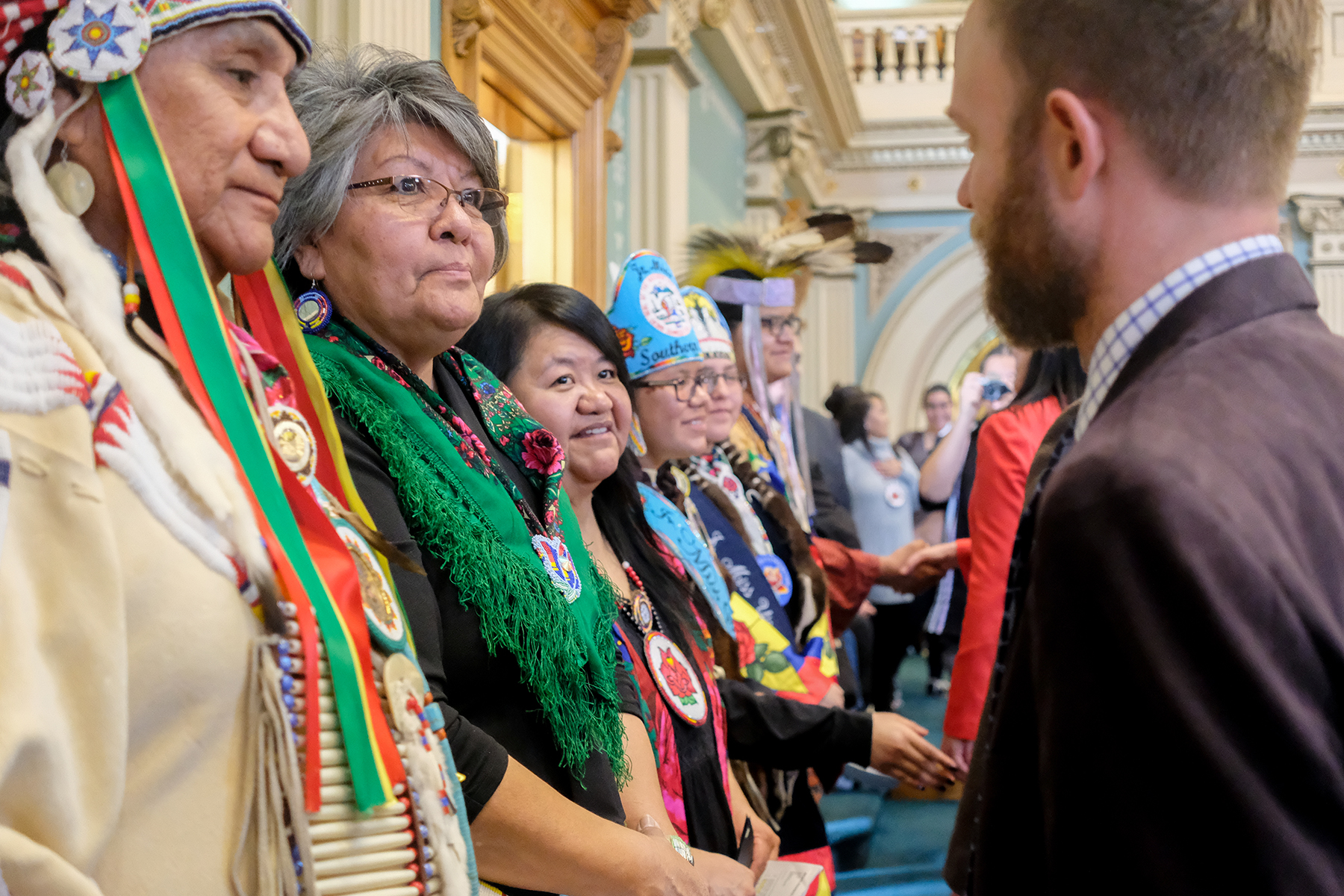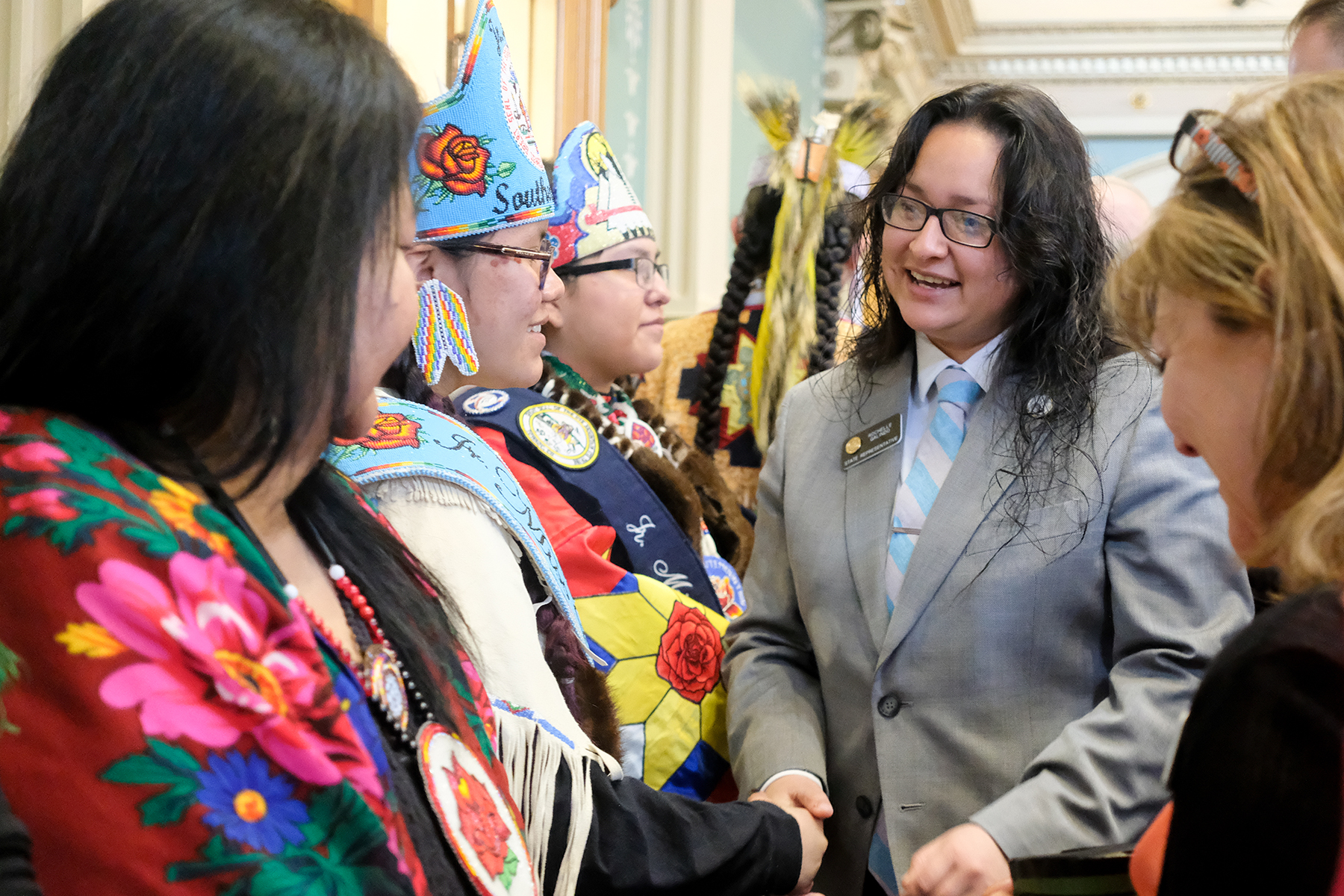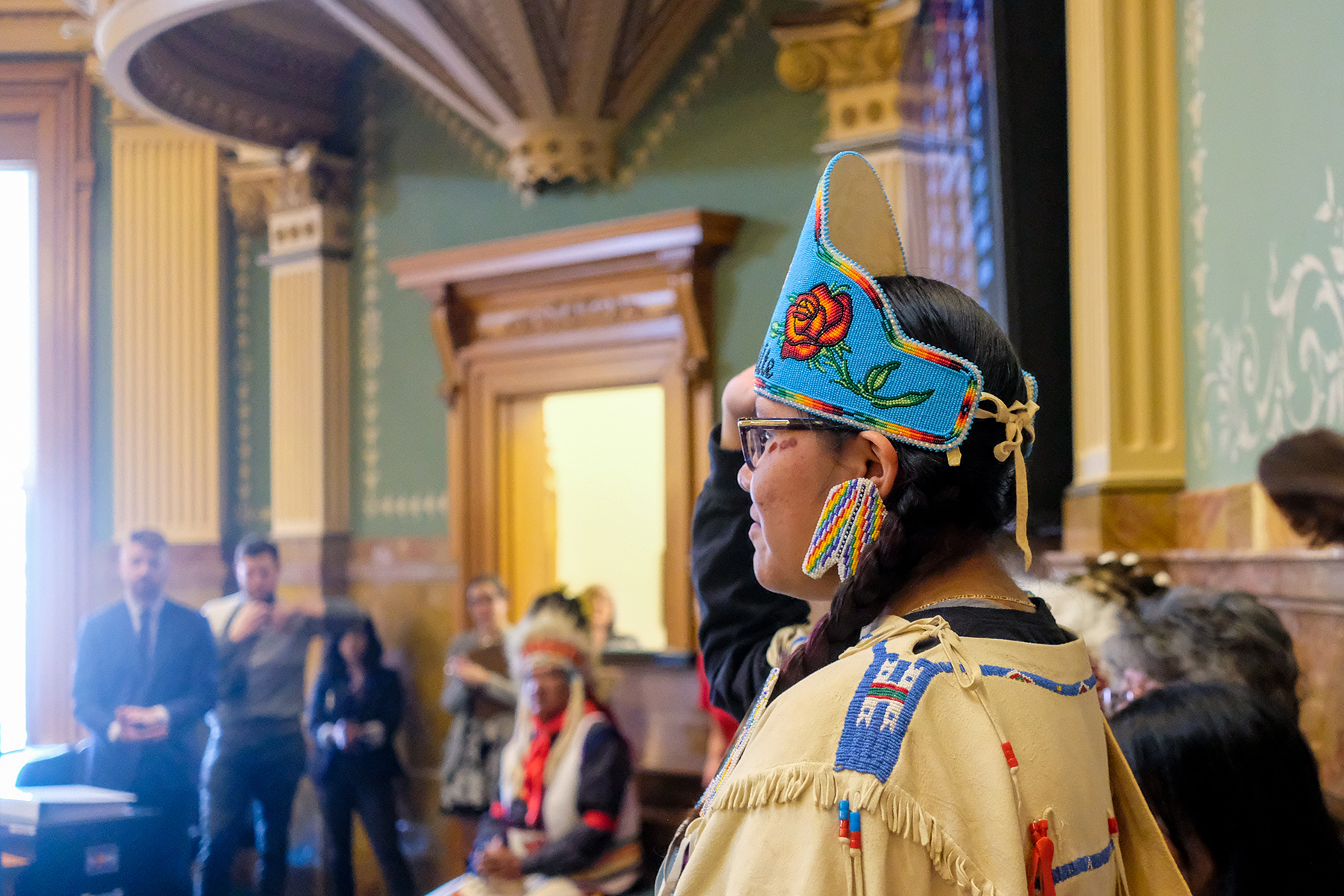The Colorado State government recognized all three Ute tribes on Thursday, March 21, officially calling that day “Ute Day at the Capitol.”
Tribal leaders and officials from the Southern Ute Indian Tribe, Ute Mountain Ute Tribe and Ute Indian Tribe of Utah, were all in attendance.
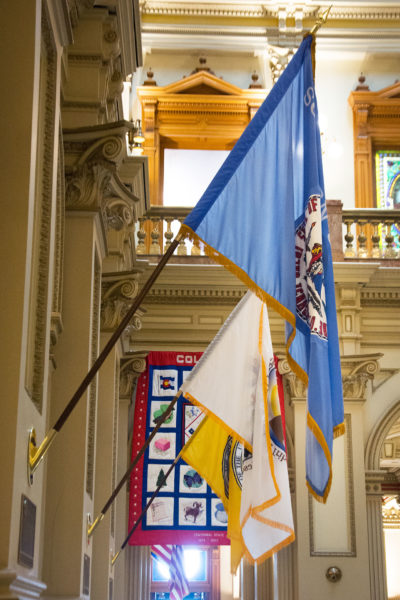
“The Utes have been and continue to be an intricate part of this state,” stated Lt. Governor Dianne Primavera who welcomed all and spoke on behalf of Governor Jared Polis.
Red Spirit from the Ute Indian Tribe honored attendees with a flag song to start the momentous day, as tribal elders and veterans: Rudley Weaver, Jonas Bullethead Grant and Gordon Hammond brought flags from their respective tribes to post on the west wall of the Capitol building.
“Thank you all for being here and taking an interest in learning about the Ute Indian tribes,” said Vice Chairman of the Southern Ute Indian Tribe, Cheryl Frost. “We’re here and aren’t going anywhere.”
Tribal Royalty from each tribe were asked to get up and make introductions. “It’s an honor to be here to represent the Southern Ute Indian Tribe and to represent natives of all tribes because some people don’t know the Ute people are still here,” said Jr. Miss Southern Ute, Autumn Sage.
The issue of finding a more prominent and permanent place within Colorado’s Capitol for the tribal flags and descriptive plaques was a goal of the Ute Tribes and former Colorado Commission of Indian Affairs (CCIA) Executive Director, Ernest House Jr.
The Southern Ute Tribe and Ute Mountain Ute Tribe supported having the Ute Indian Tribe of Utah’s flag displayed, even though they do not current reside in Colorado.
Colorado has always been the home to the three Ute Indian tribes, who once inhabited the mountains, rivers and plains of Colorado and surrounding states. The ancestors of the Utes were said to be here since 10,000 B.C.E.
Once upon a time, all three Ute Tribes were in danger of being relocated outside of the state by the United States Government, until in 1868, when the first boundaries of the Ute Reservations were drawn in Colorado.
In 1881, all the Northern Ute Bands were removed from the White River Agency, near present day Meeker, located in Northern Colorado. In the mid 1800’s the three bands: The Yampa, Umcompahgre and Grand River, now known as the Ute Indian Tribe, were forced to leave Colorado for a reservation in Utah, now located in Fort Duchesne.
“It’s an honor, it’s a privilege from this state to recognize the Ute Indian Tribe. Back home in our state, Utah, this is unheard of,” said Edred Secakuku, councilman for the Ute Indian Tribe.
To this day the Ute Indian Tribe still continues to pursue issues dating back to the 1800’s when they were forcefully moved out of Colorado. The Ute Indian Tribe is suing the state of Utah because they believe they were never compensated for two million acres of land stretching from Vernal to Green River and a billion dollars for reparations for lost minerals, grazing, water and other rights they were promised, but never compensated for.
Colorado’s Governor Jared Polis proclaimed March 21, 2019 as “Ute Day at the Capitol”, and designated “Ute Day at the Capitol” to publicly celebrate and honor the Ute Nations by stating in his proclamation: “Whereas, the state of Colorado celebrates and honors the contributions and sovereignty of the Ute Mountain Ute Tribe, The Southern Ute Indian Tribe and the Ute Indian Tribe and encourages its citizens to actively seek knowledge about the history and heritage of the Ute people in Colorado’s past, present and future…”
Wanting to continue a healthy working relationship with our current Governor as they did Colorado’s former Governor, John Hickenlooper, the Southern Ute Indian Tribe will continue to discuss their issues through government-to-government collaborations and dialogue.
“As of today, and going forward for everyone who walks by and visits our Capitol, these flags and plaques will serve as recognition of the Ute tribes and as a reminder of our commitment and our obligation to do right by Colorado’s first residence,” stated Primavera. “This administration believes our diversity is our strength.”
Commencing into the House and Senate, representatives from each tribe split up and continued into the separate foyers.
In the House of Representatives, Colorado State Representative Barbara McLachlan and Representative Marc Catlin welcomed members of the Ute tribes.
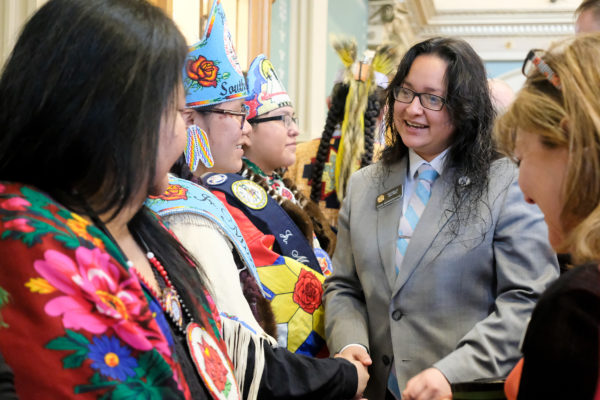
“It’s “Ute Day at the Capitol” for those of you lucky enough to be in the foyer. They raised flags up that are now in the main chamber and they are absolutely beautiful and they will never let us forget how important the Ute tribes are in Colorado,” said McLachlan “They add so much to our communities, they add a love for our earth, a fellowship with each other and symbolic relationship with their surrounding communities, a deep love for their families and a strong devotion to spiritual traditions.”
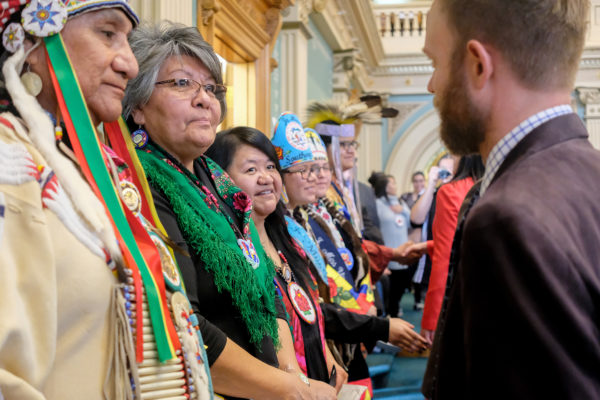
In an effort to make Colorado and its residence feel at home, the following entities collaborated to make the Ute Flag Ceremony possible: The Southern Ute Indian Tribe, Ute Mountain Ute Tribe, Ute Indian Tribe, Legislative Council Staff, Capitol Building Visitor Services, The Department of Personnel and Administration, the Capitol Building Advisory Committee and CCIA.
To continue those government-to-government relations after flag ceremony and Ute Day festivities, all three Ute tribes went to the Lt. Governor’s office and had a round table discussion.
“I’m here to listen today to whatever is important for you to talk to us about,” said Lt. Governor Primavera.
Hot topics of discussion brought up by the Southern Ute Tribe’s council members were tribal water rights, economic development and working with the Department of Motor Vehicles regarding Tribal ID recognition within federal and state guidelines. Many of these issues are shared by each tribe. Another hot button issue is working with the State of Colorado, Tribe and State of New Mexico for law enforcement. “A portion of the reservation that butts up against New Mexico and because of the response time, its quicker for our police department to respond to these calls. We want to work on the jurisdiction issue,” stated Councilman Adam Red.
All tribes concluded with praise and thanks to former CCIA Executive Director, Ernest House Jr. and Morgan Ferris, Program Assistant for CCIA, who have put hard work into making these government-to-government relations work throughout the years.
“Thank you Colorado, thank you for recognizing us as one of your original inhabitances of this territory. We we’re forcefully removed from this state,” stated Secakuku “All our power is still here, our footprints are still here, our prayers. Our mountains are still home along with the medicine of who we are, Nuchu.”

